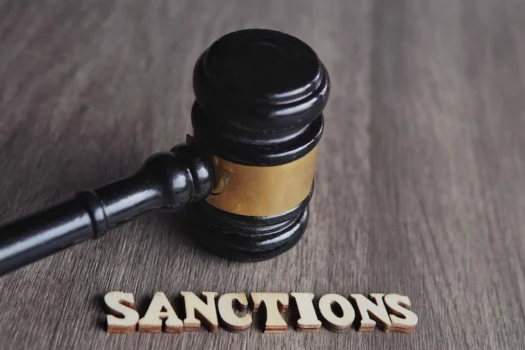
In Borough of Englewood Cliffs v. Thomas J. Trautner (A-19-24/089406) (Decided May 7, 2025), the Supreme Court of New Jersey held that municipalities and municipal corporations that engage in frivolous litigation are subject to sanctions under New Jersey’s Frivolous Litigation Statute (FLS).
Facts of Borough of Englewood Cliffs v. Trautner
Following the New Jersey Supreme Court’s 2015 order requiring judicial oversight of municipal housing obligations to preclude exclusionary development, the Borough of Englewood Cliffs filed an action seeking a declaration that it had discharged its constitutional affordable housing obligations. Developer 800 Sylvan Avenue, LLC. (Sylvan) intervened and opposed the motion, and the Borough retained Thomas J. Trautner and Chiesa Shahinian & Giantomasi PC, (collectively CSG), Albert Wunsch III, Jeffrey Surenian and Jeffrey Surenian and Associates, LLC, (collectively the attorney defendants) to represent it in affordable housing litigation. After assessing the weaknesses of the Borough’s case, the attorneys urged the Borough to settle. The Borough declined that advice and went to trial, but did not prevail. The Borough ultimately settled with Sylvan.
The Borough Council subsequently passed a Resolution censuring the mayor for pursuing “needless” litigation against the “accurate” warnings of the attorney defendants. Thereafter, a municipal election occurred during which some new Borough Council members were elected. Under the newly constituted Council, the Borough filed a separate suit against the attorney defendants and Sylvan.
Defendants demanded in writing that the Borough withdraw its complaint and amended complaint against them. They described in detail the frivolous nature of the Borough’s pleadings and warned that if the Borough failed to withdraw the complaints, they would file motions to dismiss and seek sanctions. Despite those warnings, the Borough forged ahead. Thereafter, defendants filed motions to dismiss for failure to state a claim pursuant to Rule 4:6-2(e).
The trial judge granted those motions and entered multiple orders dismissing the Borough’s pleadings with prejudice. Defendants also moved for sanctions, and the judge awarded them attorney fees and costs, finding that the Borough acted in bad faith to harass, delay, and cause malicious injury by filing its frivolous pleadings. In total, the Borough was ordered to pay $216,484.45.
The Appellate Division affirmed. It held that a public entity is not immune from sanctions for filing a frivolous lawsuit under the FLS. N.J.S.A. 2A:15-59.1(a)(1) provides that “[a] party who prevails in a civil action, either as plaintiff or defendant, against any other party may be awarded all reasonable litigation costs and reasonable attorney fees, if the judge finds . . . that a complaint, counterclaim, cross-claim or defense of the nonprevailing person was frivolous.”
In reaching its decision, the appeals court acknowledged that whether a state and its agencies and political subdivisions are immune from the FLS is an unsettled question of law. “The only published cases are two divergent Chancery Division rulings issued almost four years apart, the most recent being some twenty-seven years ago,” Judge Thomas W. Sumners Jr. wrote. “The Chancery court held In the Matter of K.L.F. that N.J.S.A. 2A:15-59.1 applies to governmental bodies. Almost four years later, another Chancery court reached a contrary result in Div. of Youth & Fam. Servs. v. P.M.”
Nonetheless, the Appellate Division ultimately determined there is no immunity. “K.L.F. and P.M. both express sound reasoning in reaching their respective rulings, making our decision a close call,” Judge Sumners wrote. “We, however, conclude, as did K.L.F. and the trial court, that a public entity is not immune from the sanctions that can be imposed under the FLS.”
NJ Supreme Court’s Decision in Borough of Englewood Cliffs v. Trautner
The New Jersey Supreme Court affirmed. It held that municipalities and municipal corporations, as defined by N.J.S.A. 1:1-2, that engage in frivolous litigation are subject to sanctions under the FLS.
Citing Jinks v. Richland County, 538 U.S. 456, 466 (2003), the New Jersey Supreme Court emphasized that the U.S. Supreme Court has recognized “that municipalities, unlike States, do not enjoy a constitutionally protected immunity from suit,” and neither the FLS nor any other substantive law in New Jersey has immunized municipalities from FLS liability for filing frivolous pleadings like the Borough was found to have filed.
The New Jersey Supreme Court first addressed the Borough’s argument that it is not a “nonprevailing person” within the meaning of the statute. It concluded that “the Legislature used the terms “nonprevailing person” and “nonprevailing party” interchangeably in the FLS to advance its dual purposes, which supports its conclusion that the Borough is subject to FLS liability. It further noted that N.J.S.A. 1:1-2 defines “person” to include “corporations,” and it defines a municipality as a “municipal corporation,” which includes, under the same definition, “cities, towns, townships, villages and boroughs.” Accordingly, as a plaintiff who filed frivolous pleadings, the Borough is not only “any other party” but also a “person” under N.J.S.A. 2A:15- 59.1(a)(1).
Next, the New Jersey Supreme Court addressed whether the doctrine of sovereign immunity immunizes municipalities, such as the Borough, from liability under the FLS for engaging in frivolous litigation. In finding it does not, the Court highlighted that municipal immunity is a concept distinct from sovereign immunity under both the U.S. Constitution and state law. It also noted that the case arises from a context entirely outside the New Jersey Tort Claims Act (TCA), and judicially created municipal immunity, to the extent it still exists, serves no barrier to holding the Borough liable under the FLS.
